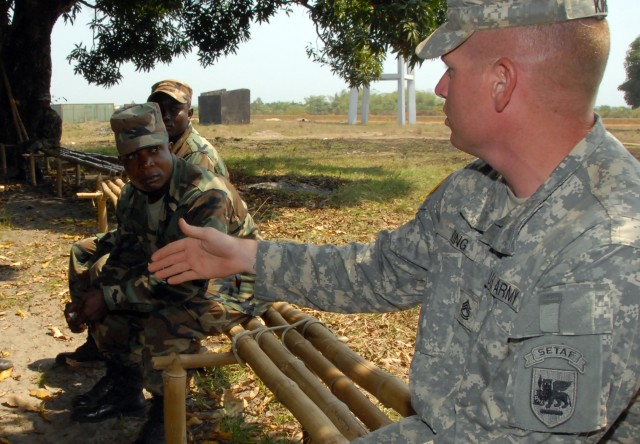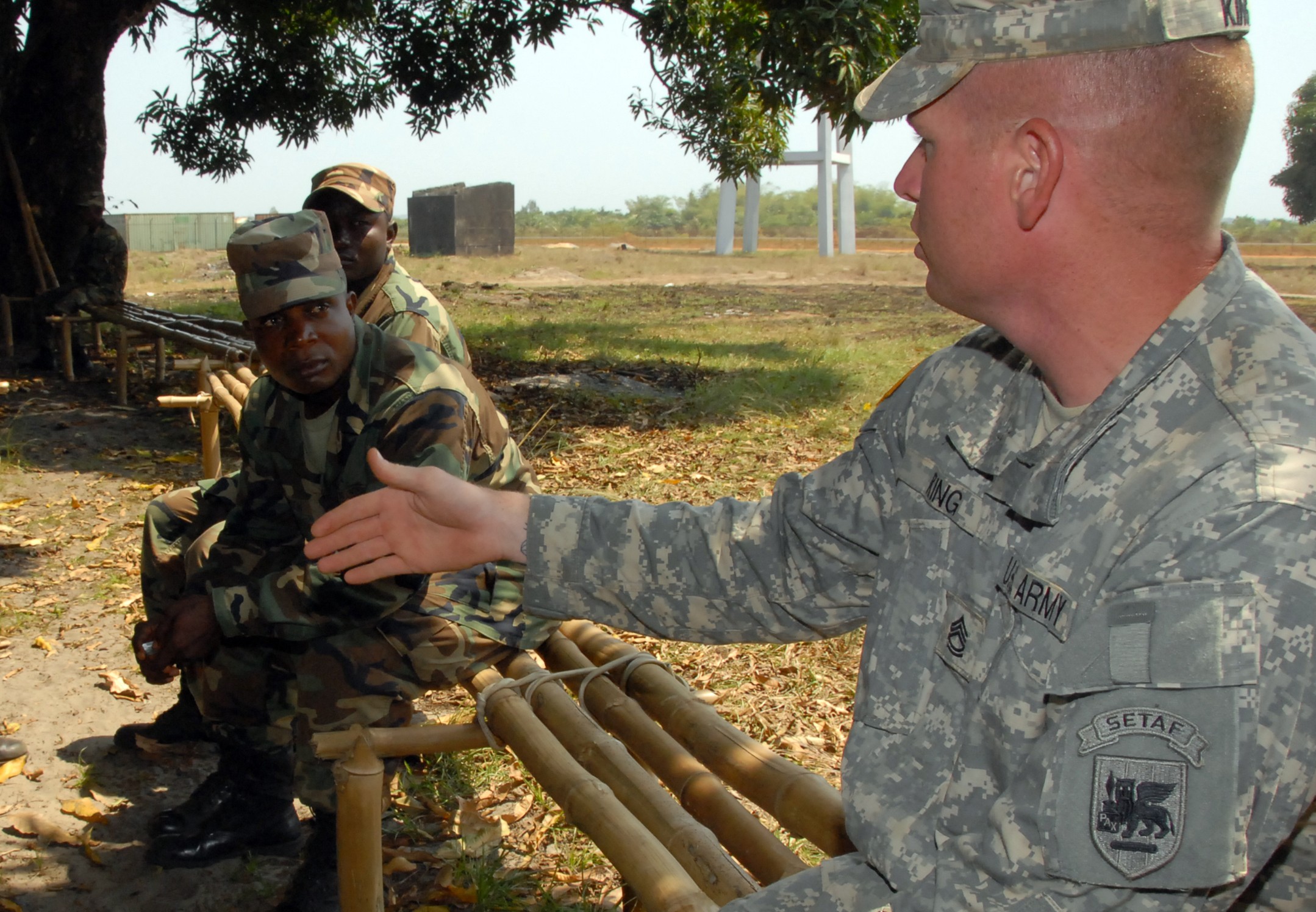WASHINGTON (Army News Service, July 20, 2010) -- The commander of U.S. Africa Command Gen. William E. "Kip" Ward told an audience at the Center for Strategic and International Studies July 20 that AFRICOM has moved into an operational stage.
Since the command stood up in October 2007, its goal has been to develop strong relationships with its international partners. Now, Ward said, AFRICOM has begun to implement its mission statement, enacting programs and operations as directed to promote a stable and secure African environment in support of U.S. foreign policy.
"Previously most of our outreach and communications focused on informing others about the command. We still do that to be sure, but today our partners are seeing through our actions how the command operates," Ward said.
Ward said the mission in Africa becomes more complicated as time progresses partly due to Africa's diverse population, split among 800 ethnic groups who speak 1,000 languages.
"[Africa has] a population that is about 1 billion people and projected to double in the next half-century. A number of countries are grappling with democratic consolidation, political reform, civil conflicts, post-conflict reconstruction and other challenges to be sure," Ward said.
Ward said that despite Africa's storied trials, it's "a continent that presents tremendous opportunities."
Ward said his command's contribution to Africa's development "will both improve the lives of Africans and build the foundation for stronger bonds" between the U.S. and Africa. He added that AFRICOM's mission will lead to "an environment where American lives are more secure, both abroad and here at home, and where American interests are promoted."
Drug trafficking, corruption and weak institutions continue to hinder Africa's economy, but AFRICOM's promotion of good governance is beginning to help, Ward said.
"Some African nations are making progress in improving governance through free and fair elections, establishment of viable institutions, provision of services and proper civil authority over impartial and inclusive military that we see emerging in many locations," Ward said.
Ward was adamant that Africa's wish for self-governance is important to AFRICOM. He cited examples of this self-governance in the maritime security being pursued by Gulf of Guinea nations and the Lord's Resistance Army being formed by Africa's great lake nations.
"The development of the African Union and its regional economic communities, growing regional cooperation among neighboring states and the establishment of the Africa stand-by force, show a broad commitment toward stability," Ward said.
Ward said AFRICOM held "hundreds of engagements" with African politicians, military members and civilians to gauge Africans' interests. The resulting vision statement that emerged, named "Africa as expressed by Africans," included the development of a legitimate security force and legitimate security institutions, the ability to combat transnational threats and the ability to lead international peacekeeping efforts.
Africa needs more security capabilities than military forces, such as police, airspace management and courts, Ward said. He added that the goals of the vision will not happen overnight or entirely by AFRICOM.
"In many cases [the goals] will happen on an African, not an American, timetable," Ward said. "We believe in encouraging African nations and the African Union to work together and lead the response rather than doing the job for them."
President and CEO of CSIS John Hamre said that Robert Gates' recent mandate for a department-wide search for $100 billion in cost savings must not impact Africom's progress.
"We can't afford to lose the progress that's been made under his [Ward's] stewardship these last years," Hamre said.


Social Sharing